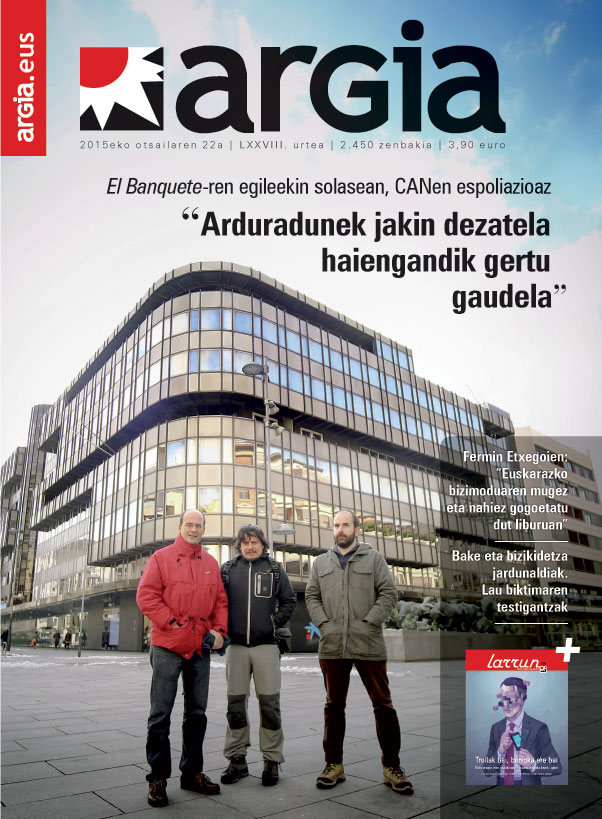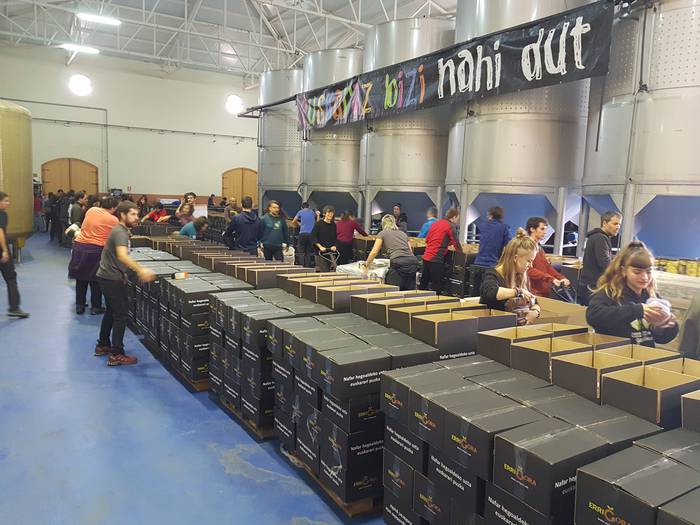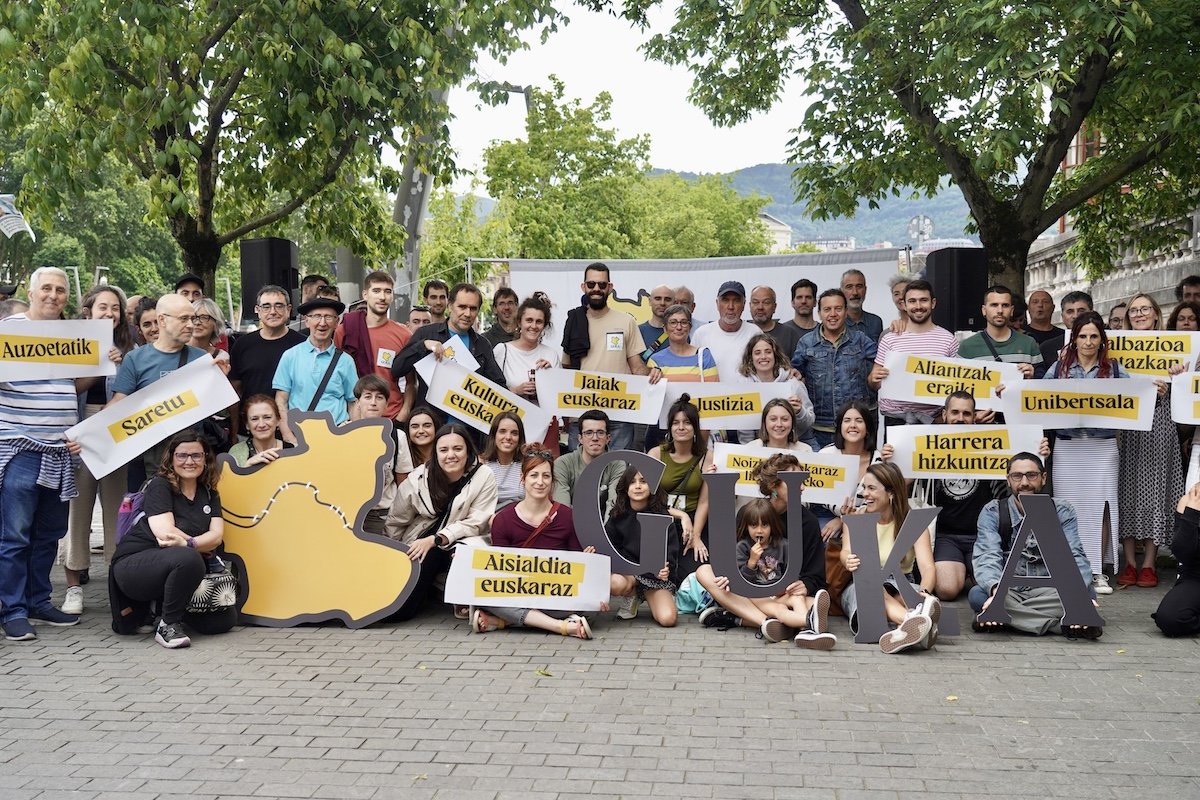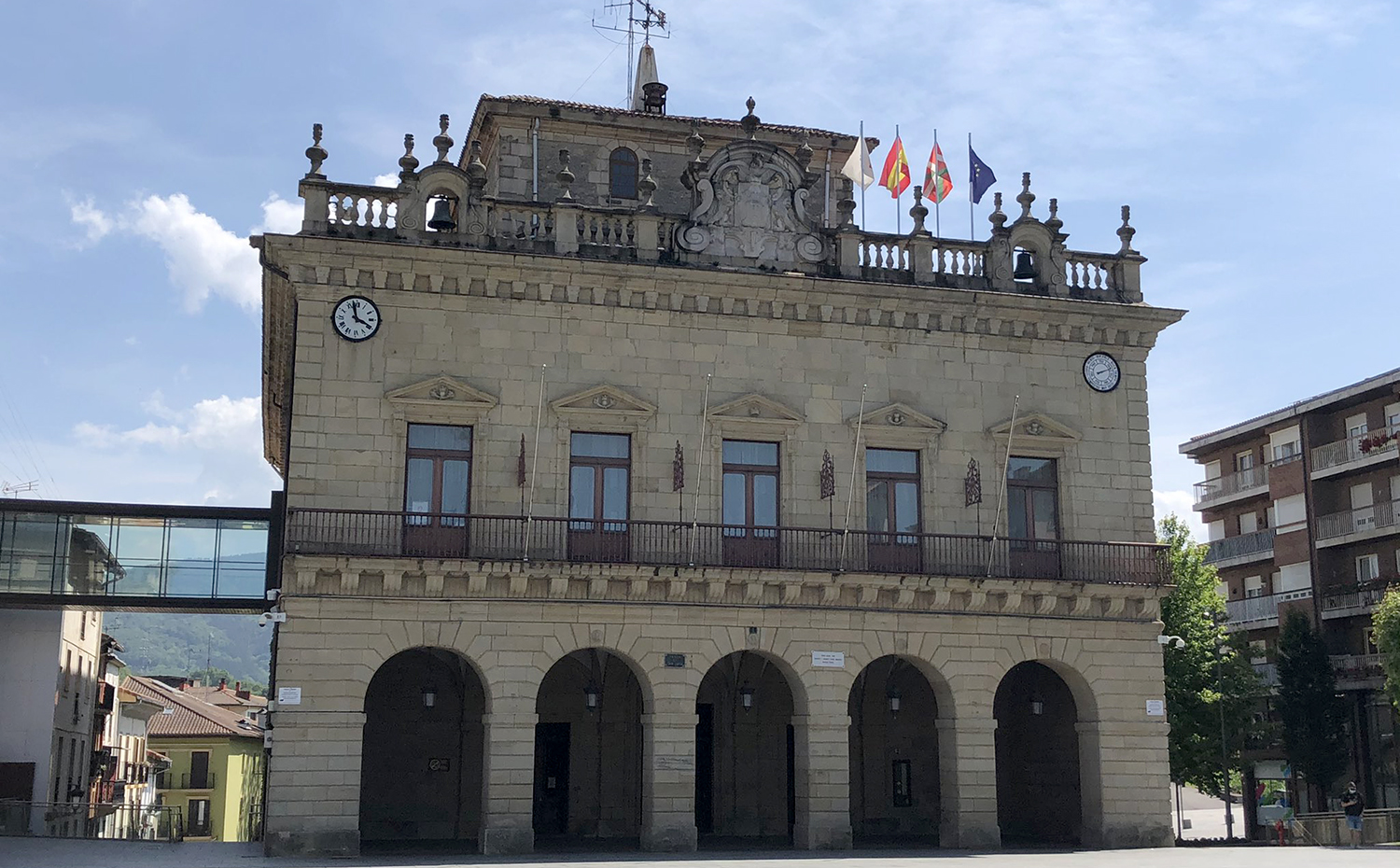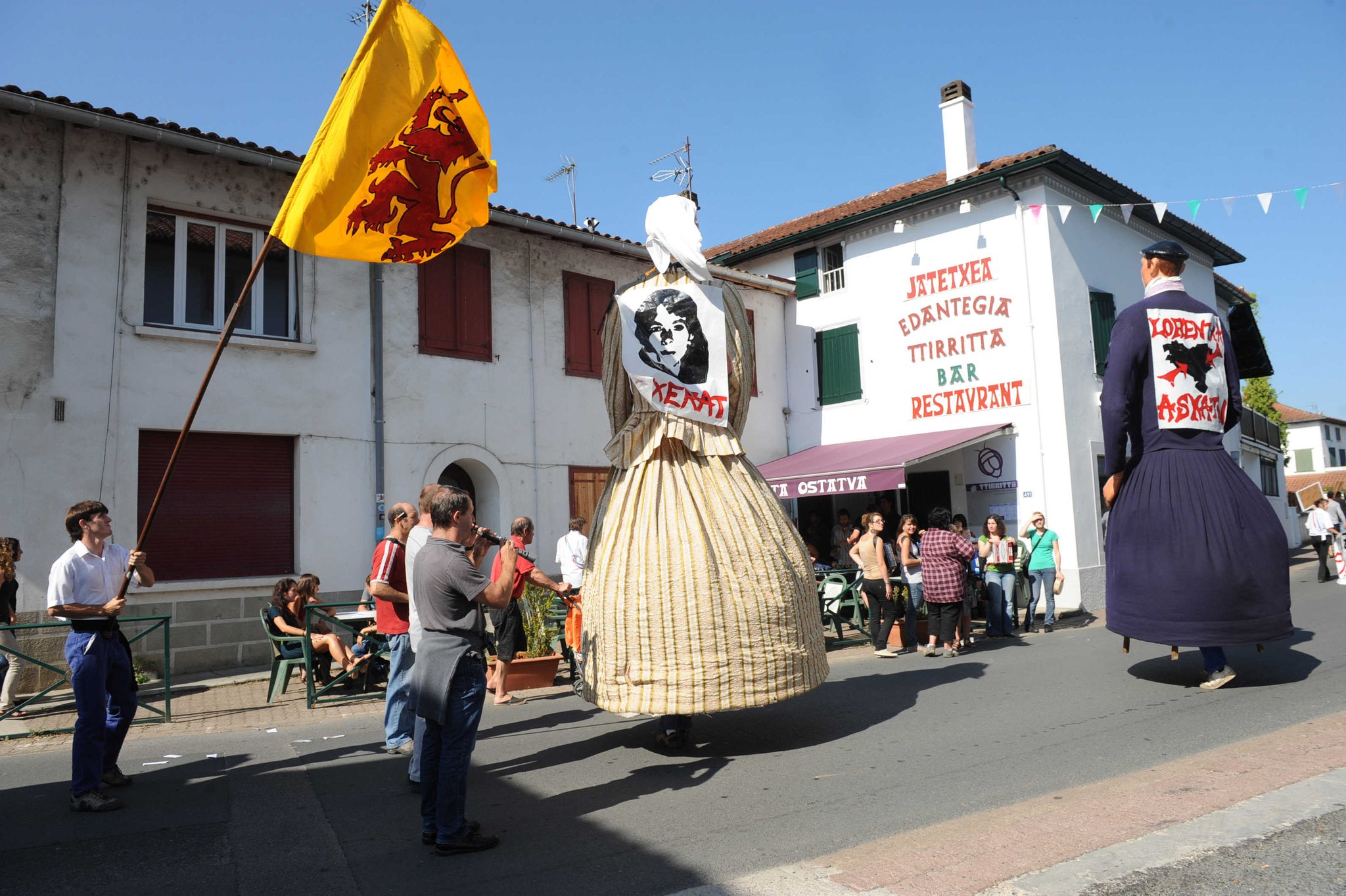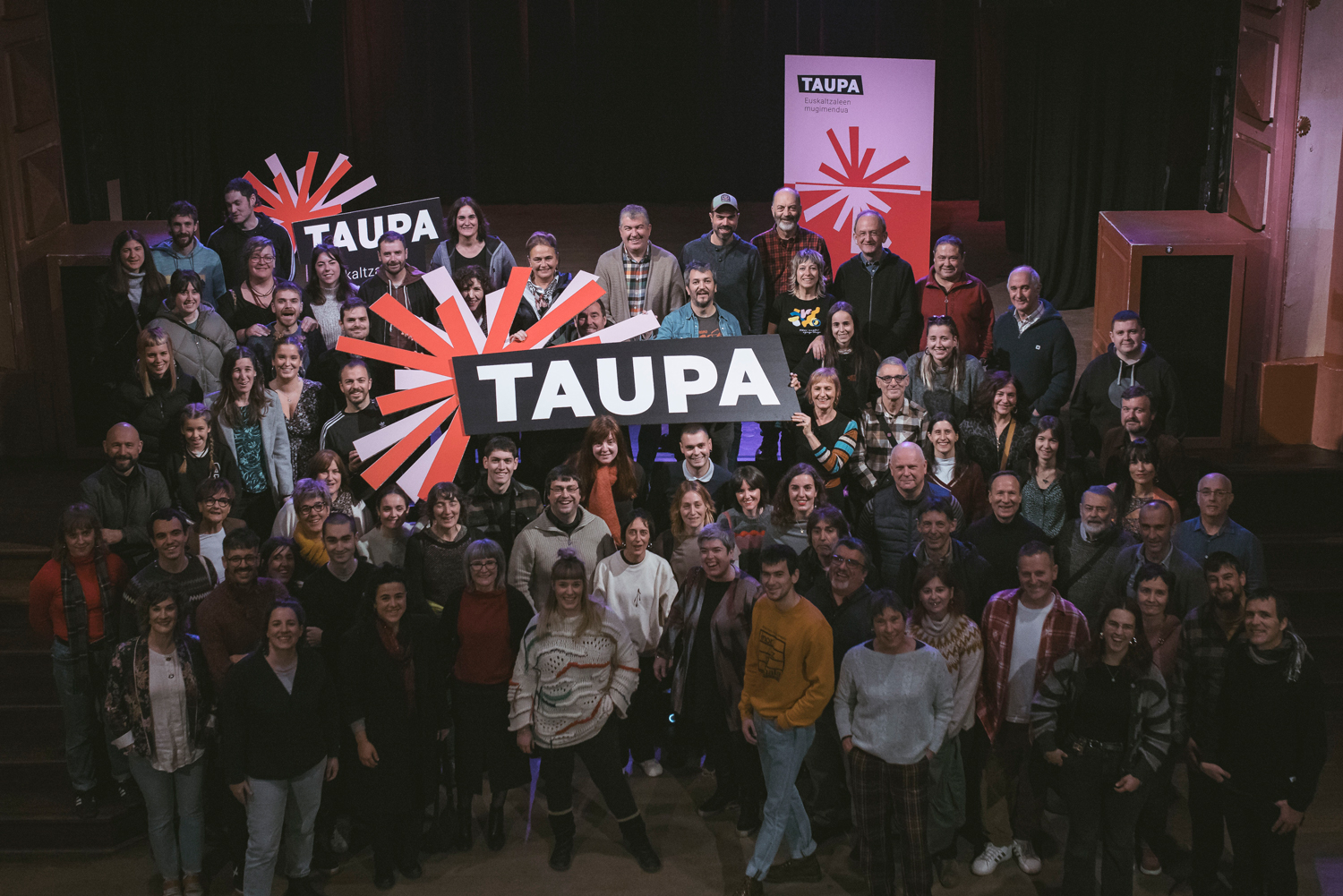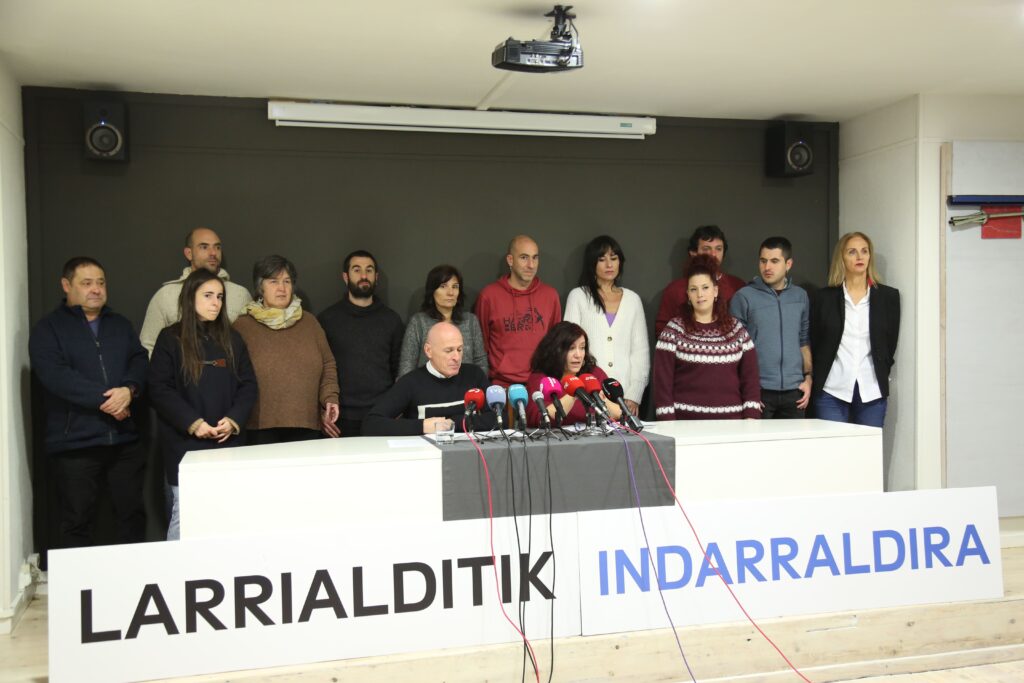- How is it possible to be more than ever and to be at the beginning of the end?
- The journalist and writer Fermin Etxegoien (Oñati, 1966) has produced the interview book Eutsi gara? (Erein, 2014) in writing. This is the only question raised by the title to twelve freelance creative professionals, about the future, about whether the Basque Country and the Basque culture will be saved, if they are not saved.
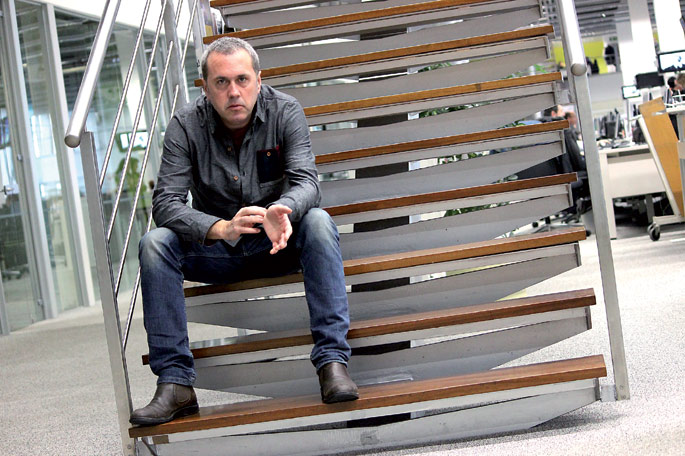
“At a time that has been achieved more than ever… it seems that we are at the end,” you start by saying.
I do not think we are the last, but it is curious: the expression in Basque has spread more than ever in the contemporary world. I don’t know anything specific, but I’m sure it’s written more in a day today than in the entire 19th century! The Internet and the new technologies came, at first they were considered a threat, and now, again, the Basque country is totally favored. Until the opposite happens, you never know! Yes, it has been achieved more than ever, but at the same time, we find indices that we could not expect: the use of the Basque Country is falling. How can it be more than ever and be at the beginning of the end, when the fundamental index (use) has a downward trend?
That's the starting point of the book.
The starting point is also older, but it is not worth telling the whole story... The editorial Erein proposed to me a work on the crisis. I did not want to dedicate myself to the socioeconomic crisis, but to the reflection on the limits, desires and difficulties of life and habitability in Basque. I wanted to talk about the powerlessness of Euskera.
He has received twelve escorts, none of us.
Not a university professor! And I don't disregard anyone: we need teachers, and we need mystical poets in an already formed society. But it's often the feeling that, without a real world, they live in a parallel world. I have therefore welcomed the autonomous professional creators, twelve, and I have spoken to them, colliding with the two opposing vectors – which we are more than ever and which we are at the beginning of the end. I remembered that singer Gari had asked me for words to make a song, which had the feeling that we were holding. I followed the example of Pete Seeger, even though Seeger insisted more that he insisted: We shall overcome (we shall win). Hence came the theme of this book: “Are we going to resist?” These are one-question conversations.
Made to twelve people, each of them in their field.
Yes, everyone speaks from their professional scope, but the projection is evident. If he talks about sustaining an independent playwright who speaks Basque, he also talks about the perseverance of the Basque country, the continuity of a national project, etc. Projections emerge by themselves.
If the professional freelancers of creation you interviewed maintain it, will we keep it?
I cannot give a certain answer, but I would go further: if they do not support it, the others will not support it either. And even if others resisted it, we would not keep it in a position to form a healthy, prosperous or enriching society. If they did not maintain it, the others would not live in a state of sovereignty. But I think we should live in prosperity, in prosperity. Primun vivere, deinde philosophari. In the book we're talking about philosophari, art is philosophari, after all, but what do we want, a society that doesn't have art? Well, no. It can live in a random way, and the Basques are very fluttered, because our letrism is always produced through the herd. And also today, of course.
Despite having asked twelve people a question, one of them replied: “Are we going to resist? What a cure!” The other, “ours is resistance.” The following: “There’s a lot of doubt about that,” “I’d like to be optimistic.” Ask you, answer…
They live in that struggle. Personally, it's a very positive people, so they're getting into this work. But they are aware that there are also borders, and problems, and disabilities. And that's completely linked to the livability of language. That's what we're talking about all the time. We could say: “Living in the theater, even if it is done in Spanish, is not easy. Quite the opposite!” In the book, Iñigo [Ibarra, Ander Lipus] also says that it works better than ever before, that it has more work than ever before, that it has several works in monolingue – only in Basque – that work better, that people will see their work in a more faithful way. Therefore, there are also contextual situations that cannot be expected; I mean, in favor of the Basque country. And there may be more. This is partly associated with the direct or incorrect socialization of language, the habitability of the principal linguistic model, the one, the degree of acceptance of this model, etc. So, all of this is very much related to the socio-linguistic realm. And what about sociolinguistics, the situation, in favor of the Basque Country? Isn't it?
We have to win the street to get home, says Iban Arantzabal, manager of the Goiena Communication Group, in a passage of the interview.
The Basque Country is the realm of microgeography. As you see one thing in one, in the adjoining street you can see the other way around. Not only do we compare Bilbao, Azpeitia, Oñati, three very different places. In Bilbao, more Basque has been given than ever to the ditch that is prayed on Poza Street, but, despite this, there has been a regression, they are more Castilan-speaking than expected. It is not just that they do not correspond to what has been given to them, but that they are refractory to what has been given to them. It is a very interesting subject, at least if one wants to speak from self-criticism: the correction of the Basque model, its usefulness, its strategic character… And from there, we would start talking about the authority over language, that is, who has ordered this to be said one way or another.
“Here and now, because no one is a totally independent or independent quesero, just as Euskaltzaindia wants us to say it and write it all, in-de-pen-te, it also goes from that, because this book…”
I do not think I am the only one to make that criticism. I believe that the regulated language is increasingly far from the language in which it is spoken, and that is a problem. So, are we going to resist? In the book, I have respected the way we talk about people. And yet, it's very targeted!
He has also had his own thoughts throughout the talks. In what we have done with Mari Añes Gorostiaga, for example, we refer to the relations between our South-North, saying that in Iparralde there are very few people looking towards the South, “like among us: almost no one, four superscholars and three mystics (and some rocker).”
In the south we are anti-Spaniards. This is our commandment in this life, to be anti-Spanish. For I believe that France is a thousand times more authoritarian, if not more dictatorial, with the Basque Country. That is clear to me. There is nothing else to do with what is happening at the ikastola in Ziburu. If that were to happen here, we would talk about Auschwitz. We love French culture, for many reasons, but in these matters, where it emerges from this convergence of the Republic, it is entirely authoritarian.
It is increasingly heard that experts say that the future of the Basque Country is played in the city. On the contrary, their professional self-employed creators live in the villages.
It's a hard thing for me. It's not just that the future of language is played in the city. In addition to this, it seems that the continuity of our civilization is also completely nailed in the city. I, for example, live in Bilbao, and because bilbainism touches us all, sometimes I think that in Euskal Herria you can only live in Bilbao. A nonsense, isn't it? I live in Bilbao, but I'm also from Oñati, and I know what lifestyle, what quality and what beautiful world there is in the village. However, it seems to me that at the moment we are dealing with one of these false dilemmas about citizenship. And as much as we say, in Euskal Herria, the city is not that big, because here we still have a very compact urban network. Go to Castile in Spain… What’s that? However urban it may be, I have more and more doubts about what is said to be the supremacy of cities. I don't know.
The last question, to professional creator Fermin Etxegoien, conductor and writer of the Musikate program of the Basque Country Irratia, is: Are we going to hold it back?
[Silence, very long, well before it begins to respond]… The Basque Country has spread to places that were once nothing but Castilian, but that expansion does not mean – with exceptions – that it has stabilized, and in addition, Castilian has spread to places where the Basque country once dominated, where it did, has stabilized, or is in the process of stabilization. Why? Because the dense or dense linguistic space generated by the millions of speakers that Castilian has, by the law of gravity, inevitably attracts many bilingual vasco-speakers, most not to say… But we Euskaldunes are not able to provide the same consistency or attractive density – in a physical sense – to the linguistic space in Euskera. That's right, that's objective.
It will be very difficult for us to achieve linguistic consistency, as the Basque Country has linguistic “pluses” that become “minus” in the face of intensity. For example, the question of plurality, that is, the differences between the dialects and, consequently, the concency weakness of the batua arising from the dialects, that is, the lack of innate consistency, to which should turn, in the first place, the preponderance in the media of here… So, the Basque species is in a vicious circle for a long time, and for that reason some are recovering a How, then, can we get a tight and therefore an attractive one?
He asked a question. And the answer?
Well, making good use of the forces. Linguistic marketing is necessary, that is, what compels us and what does not. In some communications which are in the hands of the Administration, for example, from propaganda to Goenkale, a limited, or priority, linguistic model must be disseminated that is closer to orality than the current one. Consistency will be achieved by subliminally “crushing” people through properly chosen repeated messages. You can think of it as nonsense, but it's never been done -- and we're supposed to have thousands of graduates -- experts in sociolinguistics. Many people go to the dialect, not because there is a huge linguistic richness in it, but on the contrary, because in the dialects a few things are always said in the same way, the traditional, the random, precisely in search of that consistency. For that: from some areas we should organize a subliminal and gigantic linguistic performance in favor of the consistency of the batua, something a little monstrous, yes. Otherwise, I can't think of a better strategic plan to attract bilingual speakers who don't have a particular interest in Basque and creation in Basque towards our common linguistic aesthetics. n
Ander Lipus: “Badaukat sentsazioa erresistentzia batean bizi naizela, eta ez dauzkadala gauzak batere erraz”.
Estitxu Eizagirre: “Argian egiten dugun lana, euskararen lana, oso bizi dut, eutsiko ote diogun baino, gehiago eragingo dugun”.
Luistxo Fernandez: “Ez dago oso garbi euskarak eutsiko dion. Hor ez naiz ni oso optimista. (…) Euskarak independentzia behar du bizirauteko, agian. Independentziarik gabe, Estaturik gabe, ez du biziraungo”.
Mari Añes Gorostiaga: “Baiezkoa ihardetsiko dizut baina duda frango baditut. Hizkuntzaren aldetik nire inguruan jendeak ikusten ditut gure hizkuntzaz axolarik ez dutenak”.
Eñaut Elorrieta: “Eutsi hitza badoa lotuta, gehiago, irautearekin, bizitzearekin baino. Nire ustez, klabea da bizitzea”.
Miren Amuriza: “Beti aipatzen dira bi faktore horiek, jakintza eta erabilera, baina jarreran dago arazoa, eta nik ez dut ikusten jendea kezkatuta dagoenik honekin”.
Hedoi Etxarte: “Guk ez dugu euskaraz egiten, guk hitz egiten dugu, kito. Hori da ideietako bat eta uste dut, egiten bada, emaitzak daudela segituan”.
Maider Unda: “Gogoa daukanak bai, eutsiko dio. Nik uste dut komodotu egin garela asko”.
Iban Arantzabal: “Momentua dago eustekoa, eustekoa haginekin, ez ospa egiteko, baina noski eutsiko diogula, ze erremedio”.
Maia Eder Kurutxet: “Nik nahi dut izan hemengoa, eta nahi dut ukan hizkuntza hori [euskara], zeren eta sinesten dut egiazki: ez da herri bat hemen, baina hizkuntzak ematen du herria. Nik beti sinesten dut gauza bat: euskara ikasten duen edonor bilakatzen ahal da euskalduna”.
Jon Garaño, Jose Mari Goenaga: “Esperantza daukat eutsiko diogula, baina ez gara joango, ezta ere, hemendik ez dakit nora”, “Uste dut gaudela eutsi puntu horretan”.
Miren Agur Meabe: “Eutsiko diogu, baina, betiko moduan, lanean jarraituta, eta egongo direlako batzuk, ez diot neu, beti, militante batzuk, euskara maite duten hiztun kontzientziatuak”.
Martxoaren 10etik 26ra izango da udaberriko kanpaina. 'Beste modura, denona de onura' lelopean arituko dira gertuko ekoizpena, banaketa eta kontsumoa babestu eta sustatzeko, ager zonaldean euskara hauspotzen duten bitartean. Apirila amaieratik aurrera jasoko dira... [+]
Otsailaren 28an Hendaian eman dio hasiera kanpainari Herri Urratsek. Euskararen transmisioa bermatzen duen Seaska babestea da helburua.
Gukak “Bilbo erdalduntzen duen makina” ikusaraziko du kanpainaren bidez. 24 orduz martxan dagoen makina salatuko dute, eta berori “elikatu eta olioztatzen dutenek” ardurak hartzea eskatuko dute. Euskararen aldeko mekanismoak aktibatzea aldarrikatuko dute.
Hamahiru ZirHika kide batu dira hitanoaren erabilera aldarrikatzeko eta antolakundearen ekintzen berri emateko. Azalpenak Badihardugu elkarteko Idoia Etxeberria eta Galtzaundiko Uxoa Elustondok egin dituzte. Horiei, Andoni Egaña eta Amaia Agirre bertsolariak eta... [+]
Gabonetako argiak pizteko ekitaldia espainolez egin izanak, Irungo euskaldunak haserretzeaz harago, Aski Da! mugimendua abiatu zuen: herriko 40 elkarteren indarrak batuta, Irungo udal gobernuarekin bildu dira orain, alkatea eta Euskara zinegotzia tarteko, herriko eragileak... [+]
We Basques move our feet behind the witness of Korrika to proclaim that we want to survive as a Basque people in favor of our language, with the aim of the Basque Country we desire.
The tipi-tapa is the first step taken by a migrant person who leaves his homeland in Africa,... [+]
Euskaraldia comes back. Apparently, it will be in the spring of next year. They have already presented it and the truth is that it has surprised me; not Euskaraldia himself, but his motto: We'll do it by moving around.
The first time I have read or heard it, the title of the... [+]







